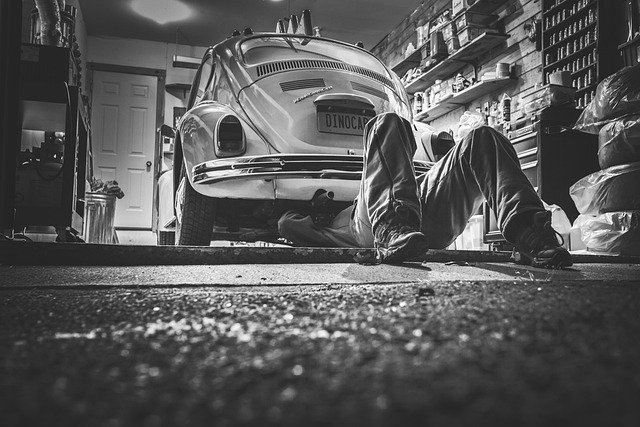Owning a car goes beyond just paying for the car itself and keeping up with regular maintenance. We all know about the costs of fuel, insurance, and keeping the car in good condition, but there are other expenses that tend to sneak up on us.
In this article, we’re going to talk about five car ownership costs that can add up and affect your finances. Firstly, there’s depreciation, which is the decrease in your car’s value over time, and it can hit your wallet harder than you might think. Then there are parking fees and tolls, which might not seem like much individually, but they can add up over time.
If you’re not paying for your car outright, you’ve got interest payments and loan fees to consider, which can end up costing you quite a bit in the long run. Moreover, don’t forget about maintenance and repairs. With all the fancy technology in cars these days, fixing things can be more expensive than you might expect, especially for newer models with specialised parts.
By being aware of these hidden costs and factoring them into your budget, you can make smarter decisions as a car owner and avoid any nasty surprises down the road. This will help you stay financially stable and satisfied with your car ownership experience.
- Depreciation
Depreciation is something that people often overlook, but it’s a big deal when it comes to owning a car. Basically, it’s the decrease in your car’s value over time. The moment you drive off the dealer’s lot, your car starts losing value, and this decline can be quite steep, especially in the first few years.
It’s like a silent hit to your finances that can catch you off guard if you decide to sell or trade in your car later on. Factors like mileage, wear and tear, and the market demand of your car all play into its depreciation.
Understanding depreciation is important for making smart choices when you’re buying a car and for managing your costs over the long haul. While you can’t stop depreciation completely, you can lessen its impact by taking good care of your car and thinking about how easy it’ll be to sell eventually.
- Insurance Premiums
One of the major car ownership costs is your insurance premium. This is the amount you pay to make sure you’re covered in case of accidents or damage to your car. How much you pay depends on various factors like your age, your driving history, where you live, and the make and model of your car. If you want a higher coverage limit or additional features, you’ll have to pay more.
However, there are ways to save money on insurance, like keeping a clean driving record or bundling your policies together. It’s important to understand how insurance premiums work and to check in every now and then to make sure you’re getting the right coverage for the best price. That way, you can protect yourself without spending more than you need to.
- Maintenance and Repairs
Maintenance and repairs are indispensable aspects of car ownership. Maintenance includes oil changes, checking your tyres, and making sure your brakes are in good condition. This helps your car run better and last longer. However, sometimes your car can break down unexpectedly, and those repairs can mess with your budget, especially if they involve complicated systems or parts replacement.
How often you need maintenance and repairs depends on factors like how old your car is, how much you drive it, and how you drive. If you’re a car enthusiast, you might be able to save some money by buying cheap car parts online in the UK and doing small repairs by yourself. However, the bigger problems usually need a professional’s touch.
Overall, planning ahead for maintenance and repairs, taking good care of your car, and dealing with issues quickly can help you avoid major expenses and keep your car running smoothly for longer.
- Fuel Efficiency and Consumption
When you own a car, how much fuel it guzzles can affect your wallet. Fuel efficiency is all about how far your car can go on a gallon of gas, and it’s a big factor in how much you spend on fuel. The size of your car’s engine, how heavy the car is, how aerodynamic it is, and how you drive, all influence how much fuel your car uses.
Choosing a car that’s more fuel-efficient or driving in a way that’s easier on fuel can save you a lot of money over time. Moreover, with fuel prices constantly fluctuating, it’s even more important to consider how efficiently your car uses fuel.
Keeping an eye on your gas mileage, conducting regular maintenance, and watching out for any issues can help you get the most out of every tank of gas, making your car ownership experience more affordable and environmentally friendly.
To Sum Up
Owning a car involves understanding all the different expenses that come with it. It’s not just about the obvious costs like buying gas and getting insurance; there are other factors like how much your car loses in value over time, the money you spend on keeping it in good condition, and unexpected repairs that can pop up.
By understanding these expenses, you can make smarter choices, avoid getting caught off guard by surprise costs, and make your car ownership experience better overall. Whether it’s setting a budget, staying on top of maintenance, or driving in a way that saves gas, being aware of these hidden costs lets you take control of your finances and feel more confident about hitting the road.
Ultimately, taking a comprehensive approach to owning a car means not just smoother rides, but also smoother finances in the long run.






